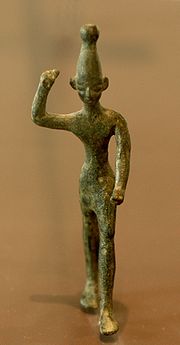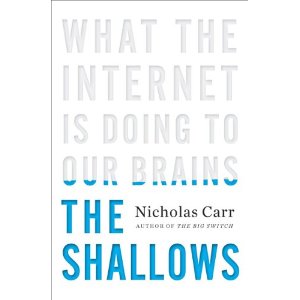 Over the last five years I have become passionate about what’s going on in the “emerging church conversation,” a grassroots network of Christian thinkers, mostly skewing younger, who claim a grace-full Christian faith that’s grounded in the teachings of Jesus without legalism or fundamentalism. As far as I know, I am the only person who self-identifies as eMORgent, which I define as a Mormon who is interested in the Emergent conversation. I resonate with its appeal to justice and the human experience, its willingness to question the familiar, its innovations with worship and its return to story.
Over the last five years I have become passionate about what’s going on in the “emerging church conversation,” a grassroots network of Christian thinkers, mostly skewing younger, who claim a grace-full Christian faith that’s grounded in the teachings of Jesus without legalism or fundamentalism. As far as I know, I am the only person who self-identifies as eMORgent, which I define as a Mormon who is interested in the Emergent conversation. I resonate with its appeal to justice and the human experience, its willingness to question the familiar, its innovations with worship and its return to story.
The best strands within Emergent manage to be always open to change while also dependent upon ancient practices–witness Tony Jones’s excellent recent book about the Didache, a first-century manual for Christian life and practice that Emergents have resurrected from the dustbin. To be Emergent is to be always emerging; it’s not to have emerged. It will be interesting to see how long Emergents can maintain their energy and enthusiasm without becoming entrenched in their own ideas and burgeoning institutions. The history of religion is not on their side at this point, since history is littered with religious groups that began as revolutions and slowly ossified, only to be upended a generation or two later by another burst of renewal.
What does Emergent offer to me as a committed Latter-day Saint?

At its best, the Emergent ideal can enliven burned-out people and put some new wine in tired wineskins. Emergent does this by balancing focus on Christ–Christ as savior, Christ as Lord–with a focus on Jesus. I worry that Mormons don’t talk about Jesus enough. Over the last twenty years, we’ve seen a marked shift in LDS leaders’ rhetoric toward Christ, whose name is now prominently displayed in the Church’s logo. It’s wonderful to have this emphasis and renewal within the LDS Church–more theological attention is paid to grace and the uniqueness of Christ’s atonement than in any prior generation of Mormon history. But why is it only Primary children who are on a first-name basis with Jesus?
Whether we use “Christ” or “Jesus” is not a navel-gazing exercise or an irrelevant semantic question. Religious scholars have shown the crucial importance of mere nomenclature. The theology book White Women’s Christ and Black Women’s Jesus, for example, demonstrates that it takes a certain stance of cultural privilege even to relate to Christ–which is a title, not a name, and which emphasizes formality and the distance between the seeker and the Sought. White women in this theologian’s study preferred that distance, whereas black women connected with the human Jesus who wept, suffered, ate, alienated his family, and chose to hang out with sinners instead of the Establishment. This Jesus is about skirting the edges of religious authority, not being wedded to it.
This is the Jesus that Emergent folks are talking about, and it’s often difficult to find him in official Mormon Church meetings, although he dwells richly in our conversations, our commitment to service and outreach, and our families. Part of the Emergent story is that we are more likely to encounter Jesus when we step outside our comfort zones and stop doing church primarily because that is what we’re expected to do.
Where must a Mormon draw the line with Emergent theology? A few years ago when I was visiting Grand Rapids, Michigan, I was invited to attend a talk and book signing by Rob Bell. Rob Bell was clearly one of the rising stars of the emerging church conversation, so I was very interested to hear what he had to say. (For the record, it’s very much a live question whether Bell can be considered Emergent, since he pastors one of the largest megachurches in Michigan, sells out Madison Square Garden when he’s in New York, and is into church growth and some other issues that most Emergent folks just don’t care about. But if you only had his books to go on, it’s clear that his theology is heavily influenced by Emergent ideas.) This very earnest young man had people nodding and “mmm”ing as he discoursed on the many ways the evangelical church had failed him and other young people. For most of it, I was right there with him. When he began talking about the institutional Christian church, however, he made a casual statement that would give any Mormon pause: “After all,” he said, as though this were the most obvious thing in the world, “Jesus didn’t come to earth in order to found a church, now did he?”
Well, a huge part of the Mormon story is that he did. Our gospel is not just that he came, served, died, and was resurrected, but that he left us with apostles and prophets, as well as an institution that is itself a means of grace. Mormons cannot not sweep any of that aside. It is possible to affirm those core beliefs without committing the all too common Mormon sin of ecclesiolatry, making an idol of the Church and its leaders. The key is to find a balance–we can learn from the Emergents about being open to God’s fresh call to do a new thing and to sometimes work outside of institutions and those in leadership. But we also need to stay humble and open to the fact that old wisdom is often actually the best wisdom, as the Emergents themselves have found.
Recommended reading on Emergent:
The Jesus Creed by Scot McKnight
The New Christians by Tony Jones
From Stone to Living Word by Debbie Blue

